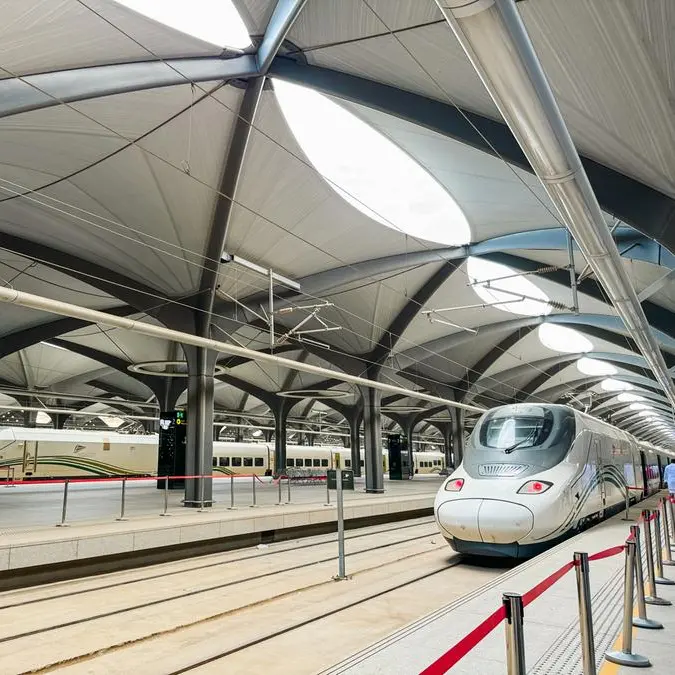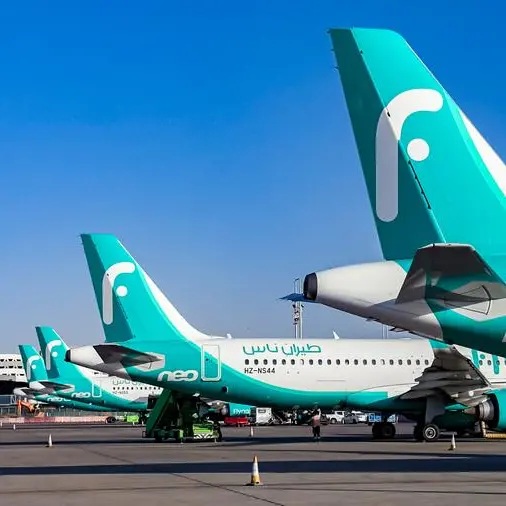PHOTO
Agritech solution provider FarmERP aims to enhance Artificial Intelligence (AI) -based advisory services and focus on sustainability and carbon balance through its SaaS-based platform for agricultural and food supply chain companies.
Its subscription-based model provides a suite of services, including implementation, training, customisation, and integration, all anchored by its FarmGyan offerings, which leverage AI and Machine Learning (ML) technologies to strengthen food security, build resilience against climate change, as well as promote sustainability..
By enhancing AI-based advisory services across the Farm to Fork supply chain and focusing on sustainability and carbon balance, FarmERP expects a 100 percent growth in its clientele.
In an interview with Zawya Projects, FarmERP’s Co-Founder and CEO, Sanjay Borkar, said the company saw a threefold increase in the year-on-year revenue last fiscal year and aims to double its current revenue in the upcoming year.
The company enjoys a strong presence in the Middle East and serves over 30 countries including the UAE, Saudi Arabia, Qatar, Oman, Egypt, and Jordan.
“With a registered office established in the USA, FarmERP plans to expand into the Gulf region to better serve existing clients and create employment opportunities,” he said.
The agritech firm secured funding from Technogen, a Singapore-based strategic investor, which was then utilised to enhance the FarmERP platform and drive global business development initiatives.
“We plan to raise the next round of capital in the third quarter of financial year 2024-25. This will be utilised for improving farmERP's FarmGyan offerings around AI and ML based agricultural intelligence,” said Borkar.
He added that a significant portion of the funding will be allocated towards scaling up business operations outside India, with a focus on the MENA region.
It involves optimisation of resources, assessments on crop health and soil fertility as well as the use of irrigation techniques that result in increased investments towards agriculture within this region.


Excerpts from the interview:
Can you provide insights into the current state of the agriculture sector in the Middle East, highlighting key market size, challenges, and opportunities?
Even though agriculture contributes only 13 percent of the GDP in the Middle East, its significance surpasses mere statistics. It is crucial for developing resilient food systems and supporting central economic sectors that make communities vibrant.
Consequently, agritech has a promising future in MENA with an estimated CAGR of 12.62 percent, indicating its potential as an emerging market segment. Governments are investing in domestic food production due to growing populations and aspirations for self-sufficiency exemplified by the UAE government’s food security initiatives and Saudi Vision 2030.
On the other hand, countries such as Oman have shown a commitment to new-age farm solutions, which is reflective of the region’s focus on innovation. The adoption of sustainable practices aimed at carbon sequestration should foster economic growth while making it possible for the Middle Eastern agritech market to be greener in the future.
What factors do you believe are driving the projected substantial growth of the global farm management software market?
The global farm management software market is poised for substantial growth, with an estimated size projected to increase from $3.4 billion in 2024 to $5.8 billion by 2029. This growth is anticipated to occur at a CAGR of 11 percent over the period spanning 2024 to 2029, according to a report by MarketsandMarkets.
The ascending trajectory of the market reflects a growing recognition and adoption of farm management software solutions across the agricultural sector, indicating a significant shift towards digitalisation in farm operations during this timeframe.
How has FarmERP adjusted its strategies and technology to prioritise sustainability in Middle Eastern agriculture?
Our main objective is to strengthen the agricultural sector and support critical aspects of sustainable development, such as food security, climate-smart agriculture practices, profitability and overall agricultural productivity.
These goals are especially important in areas where environmental challenges are important. With the increasing importance of climate technology worldwide, FarmERP takes the lead, using all the necessary information we have. Through FarmGyan, we help companies secure carbon credits and provide comprehensive GHG balance and carbon reporting
Could you share the timeline of FarmERP's entry into the MENA region and discuss the company's growth trajectory over time?
More than 12 years ago, FarmERP ventured into the MENA region with a mission to help address food security and water scarcity issues in agriculture. Since then, we've expanded significantly, managing agricultural operations across the Middle East, from the UAE to Jordan.
Serving a diverse clientele, ranging from major supply chains to specialised farms, we offer more than just software solutions. Providing valuable advisory services to farmers and contract farming companies, we've gained deep insights into the region's agricultural landscape. This expertise, coupled with our advanced AI and ML solution FarmGyan, has greatly enhanced our clients' profitability. With our upcoming expansion into Saudi Arabia, we're poised for continued growth. Next year, we will set up a registered office in the Kingdom, which will enable us to work with government bodies and private stakeholders.
How does FarmERP address the rising demand for sustainable agricultural practices in the Middle East?
By leveraging the wealth of data in our ERP, we are poised to provide GHG and carbon reporting services to help companies secure carbon credits and explore sequestration opportunities. Our platform plays a key role in promoting sustainable agricultural practices, collecting and analysing comprehensive data from the field to measure emissions, and identifying areas for emission reduction and/or sequestration.
FarmERP’s insights into carbon sequestration highlight the positive impact of environmentally friendly agriculture on greenhouse gas emissions. With our data-driven solutions, we aim to offer a comprehensive sustainability reporting module for agribusinesses.
How does FarmERP plan to digitise 10 million acres of farms in the Middle East within two years, considering the region's unique agriculture market?
At FarmERP, we are deeply invested in building solutions that match the needs of the Middle Eastern agricultural market. Our unwavering commitment to research and development drives us to tailor our offerings to the specific needs of the industry.
We are proud to introduce a user-friendly mobile app, available in both English and Arabic, designed to provide agribusinesses with valuable insights into pesticide use, water consumption function and nutritional needs. Additionally, we harness the power of sensors to ensure accurate vegetable picking, increasing efficiency across the board.
With a relentless focus on innovation, FarmERP’s holistic approach is poised to meet the unique challenges and needs of the Middle East’s agricultural landscape, opening the way for growth and sustainable prosperity.
Could you detail how FarmERP integrates modern technologies like AI, ML, and Blockchain into its platform to revolutionise agribusiness in the Middle East?
FarmERP’s AI and ML algorithms enable precision agriculture by analysing data on soil health, weather patterns, and crop growth stages. This data-driven approach empowers agribusinesses to make informed decisions regarding irrigation, fertilisation, and pest control, leading to higher yields and resource efficiency.
Blockchain ensures transparency and traceability across the supply chain, bolstering consumer trust in Middle Eastern agricultural products. Every stage of production, from planting to distribution, is recorded in an immutable ledger, enhancing market access and premium pricing for agribusinesses.
Predictive analytics powered by AI and ML assess risks such as crop failures and market fluctuations, allowing farmers to implement effective risk management strategies. Smart irrigation systems optimise water usage, crucial in water-scarce regions, while data-driven decision-making empowers farmers with actionable insights for efficiency and sustainability.
How has FarmERP's widespread adoption across diverse crops and land areas impacted farmers' productivity, revenues, and traceability in the Middle East region?
By leveraging FarmERP's platform, agribusinesses in the Middle East have been able to adopt precision agriculture practices, optimising resource usage and maximising yields. AI and ML algorithms analyse data on soil conditions, weather patterns, and crop health to provide actionable insights for informed decision-making. This has led to more efficient use of water, fertilisers, and pesticides, resulting in increased crop productivity per unit area.
By improving productivity and crop quality, agribusinesses and farmers can command better prices for their produce in the market.
Additionally, the transparency and traceability features of FarmERP, enabled by Blockchain technology, enhance the value proposition of Middle Eastern agricultural products. Consumers are willing to pay premiums for products with verifiable origins and quality assurance, leading to higher revenues for agribusinesses.
(Reporting by Syed Ameen Kader; Editing by Anoop Menon)
Subscribe to our Projects' PULSE newsletter that brings you trustworthy news, updates and insights on project activities, developments, and partnerships across sectors in the Middle East and Africa.





















